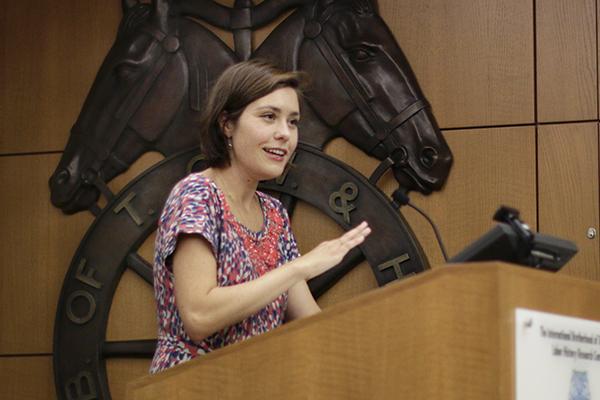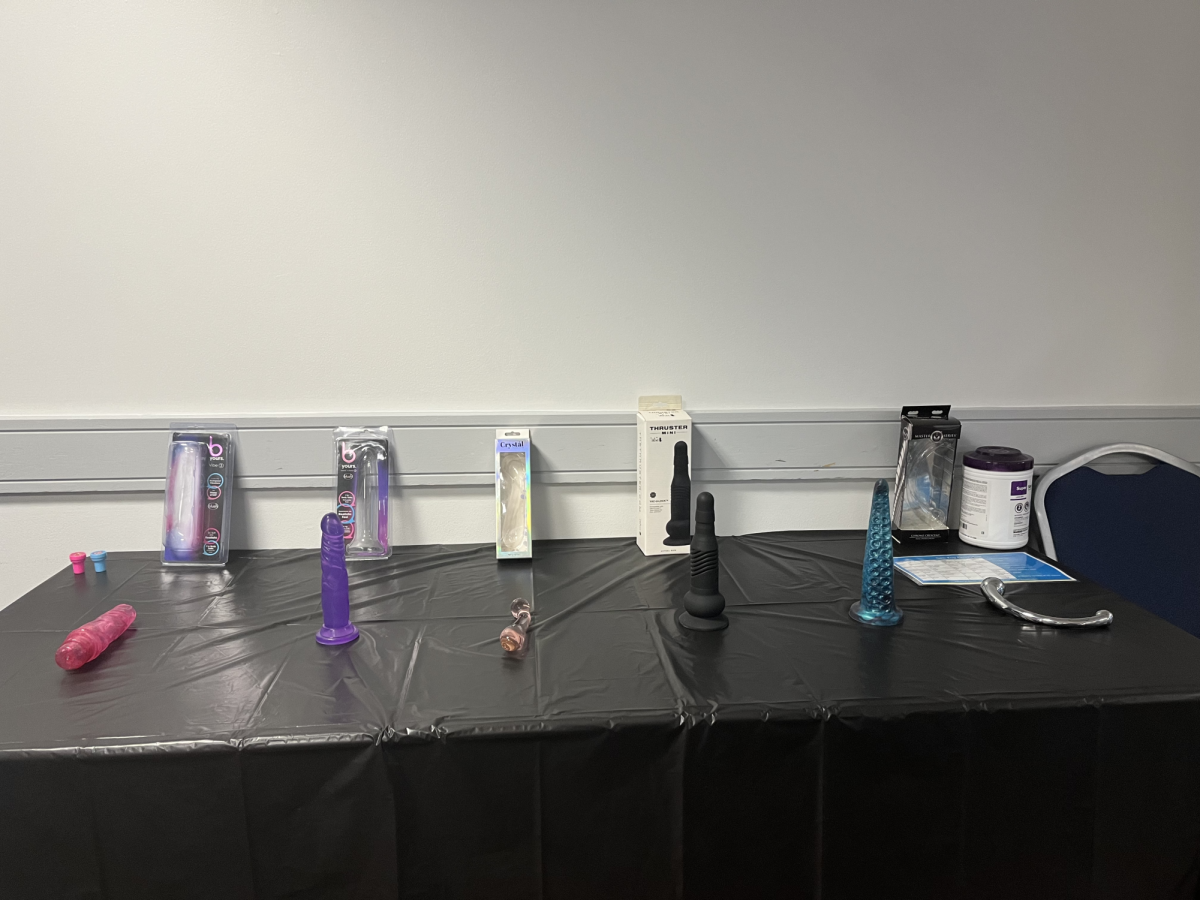Author Kseniya Melnik’s Russian accent punctuated a reading of the first chapter from her forthcoming book, “Ghost Towns of My Youth,” in Gelman Library Thursday night.
Melnik will teach at GW for a year after being named the Jenny McKean Moore Writer in Washington fellow in 2014. Her debut collection of short stories, “Snow in May,” received praise from NPR, The New York Times and The Washington Post.
In the book, she draws on her experience of growing up in Magadan, Russia, which held forced labor camps for several decades during Joseph Stalin’s rule.
Melnik’s love of magical realism, and the complicated history of Magadan, inspired her to write “Ghost Towns of My Youth,” which is a coming-of-age story about a Russian immigrant named Andre. Andre leaves behind his life in Magadan – where he was bullied – and runs into the magic Siberian wilderness before eventually moving to Los Angeles.
We talked with Melnik about her inspiration, writing style and possible ideas for story that takes place in the District. Responses were edited for length and clarity.
Q: What is it about Magadan that brings you so much inspiration?
A:Well, first of all it’s my hometown and I think those first impressions, the nature, it imprints on your imagination if you have a poetic or artistic bend. So for some people they remember the water, the sea. For me, it’s the snow. To me, it’s something about the snow and the snowflakes, those intricate designs kind of making up, “Is there a castle in that pile of snow?” So that’s what triggers my imagination.
My household was very artistic. I learned to play piano and violin. My mother was a musician. We read fairy tales, Russian classics. I studied dance. I went to the theater. My sister and I were constantly putting on plays and performances.
But then, when I moved to America and as an older person starting to study Russian history, it’s then that I realized in what kind of place I grew up. It’s actually then when I realized, “Oh my god. People don’t associate Magadan with fun and games and the snow. People actually associate Magadan with this dark chapter in Russian history, with the gulag camps.” I started researching that and I realized what a contrast there was between the beauty of nature and how many people died there, between my happy childhood and the horrible, horrible memories of other people. The contrast just killed me. How could I be so happy in a place that so many people suffered?
Q: So you’re focusing more on the setting and what’s happening in history rather than on the characters?
A: Well, no, I do try to focus on everything. Characters are very, very important to me. I see them in my head. Of course, I lived with them for almost 10 years so I feel like I could walk into a room and tell, “This one is this character, this one is this character.” But I feel like the conflicts that they had could really be lived out in a smaller arc.
Q: What has your time at GW been like so far?
A: So far I’ve been really impressed with my students. My undergraduate workshop is pretty intimate – I only have five students and I tried to approach them almost as if they were MFA students just because that’s where I got my training. We’re doing a lot of close reading, which is what a writer must be able to learn. They are picking up on the details that I honestly did not expect, so I’m honestly very impressed.
Q: I did get the feeling that setting was an integral force in your writing. So if you had to choose something about the District that grabs you to write about, what would it be?
A: As you can see from my novel, I’m interested in places where lots of people died and then the town has sort of built over on their bones, on their graves. That’s sort of an obsession of mine. But this is the same for old cities when we’re walking and dramatic things have happened on every block.
For sure, so much history has been made here and I’m sure a lot has not been told. There are probably a lot of voices – D.C. has been a diverse city from the very beginning. I’m sure there has been some story that has not been told that is right there, and we are walking by every day and just don’t notice. So if you really dig in it would probably be some sort of immigrant voice in the middle of the building of this white America. Probably something like that.







